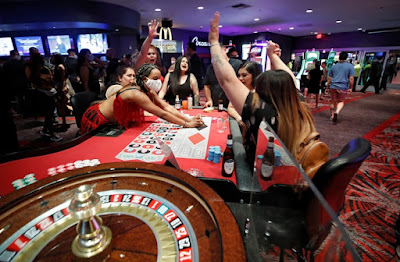Impacts of Changing Technology
Americans appear to cherish innovation and the items and administrations made conceivable by innovation. In 1995, individuals more than 18 went through around 3,400 hours sitting in front of the TV and recordings, paying attention to the radio and recorded music, playing home computer games, and perusing printed books, papers, and magazines (Bureau of the Census, 1997). Cooperation with a home PC is quick moving toward the prominence of these more seasoned advancements and exercises. The primary home PCs were presented as a specialist unit in 1975. Today, around 40% of all U.S. families own a PC; approximately 33% of these homes approach the Internet. PC innovations in homes, workplaces, and public spots join and increment the usefulness of more seasoned advances, giving better approaches to utilize data and to speak with others. None of the significant changes in the association of figuring and in processing innovation was anticipated even mostly in the century—the ascent of high-innovation businesses, the changes in office work from administrative to specialized work, the notoriety of electronic mail, the reception of home PCs, and the incredible spread of the Internet (from 150 destinations in 1993 to 2.45 million out of 1997).
Changes in the promoting of betting may adjust the socioeconomics of betting and obsessive betting. Betting undertakings have generally drawn in new or rehash clients through an assortment of instruments, like simple credit, low costs of passage (nickel openings; $1 lottery tickets), or ''comps" and "gifts" (free games, food, or beverages; diminished lodging costs; shows and other amusement for nongambling relatives). As betting has become more OK as a business speculation (Eadington, 1982), famous advertising methods have been applied to build betting deals and benefits. Progressively, organizations target specific market sections. For instance, while circuits generally pulled in men and individuals who could or would put a hold on from work, gambling clubs might offer child sitting offices for guardians and end of the week bundle escapes for working individuals to lessen their work and worries about spending plan and time. Club likewise assess how to utilize floor space according to their market (Dandurand, 1990). For instance, they might recognize a market specialty, for example, older ladies who bet $2 openings, and plan safe spots for these ladies to put their satchels. Lotteries might draw in speculators who are female, minority, low pay, or older on the grounds that they are essentially exertion free and don't need dangerous social practices or huge ventures (Lorenz, 1990).
During the period when legitimization and the open advertising of gamblilng 바카라사이트 opened enormous new business sectors to betting, specialized advances in registering and media communications made conceivable the making of new mechanized betting gadgets and administrations, better gambling club security and policing against cheating, improvement of remote betting administrations, merged tasks across states and settings, and better assortment and utilization of market information from such data sources as FICO scores, Internet hits, and participation (club card) records. The quickly developing high-innovation betting industry proposes that future advances in media, digitization, satellites, and so forth will prompt numerous future mechanical changes in betting.
Innovative change is apparent even in the customary horse racing industry. 10 years prior, contest with different types of lawful betting compromised the proprietors of ponies, preparing offices, and circuits with slimmer benefits as new types of betting gave clients new diversion alternatives. New innovation as satellite betting offices or "wagering parlors," simulcast races, and video poker machines that could run 48 hours daily might have saved a few circuits. Courses today offer new betting choices on possibility based games made conceivable by PCs (e.g., picking the specific request of completing or betting that an even-numbered pony will win). New games, for example, picking the champ of six races can offer enormous adjustments with low probabilities of a success, moves toward that increment benefits and draw in clients. Changes in PCs and media communications are changing the manner in which hustling games are being disseminated.
Gambling on horse races is presently accessible to many individuals without leaving their homes. The Internet offers many sites where individuals can wager on an assortment of sports, including hustling. Another work by Television Video Games/On Demand Services joins TV innovation with circuit items (Barrett, individual correspondence to the advisory group, 1998). It isn't clear what impact these new betting chances will have; for instance, intricacy in games can really diminish hazard taking (Johnson and Bruce, 1997).
In assessing the effect of innovative change on neurotic gambling 온라인카지노, we can't make expectations dependent on specialized elements alone (Shaffer, 1996). For example, the phone, TV, and the Internet are on the whole advancements that can possibly decrease the significance of actual distance as a limitation on betting. They decrease the monetary and conduct expenses of getting data about betting and increment individuals' betting choices. Notwithstanding, individuals could utilize both the phone and the Internet, all things considered, to increase their conventional up close and personal correspondence for social contact. They could grow their number of companions and associates and decrease the trouble of organizing cooperation with them. On the other hand, on the grounds that these innovations excessively lessen the expenses of correspondence with geologically far off companions and colleagues, they might prompt changes in individuals' portfolios to more far off contacts. What's more, the Internet, through such things as intuitive games and circulation records, cultivates correspondence among outsiders. Accordingly, individuals who utilize these advancements intensely may have a more modest extent of their absolute friendly contacts with family and dear companions. Betting through link or satellite TV and the Internet gives asocial diversion and data that could rival social contact as a way for individuals to invest their energy.





Comments
Post a Comment